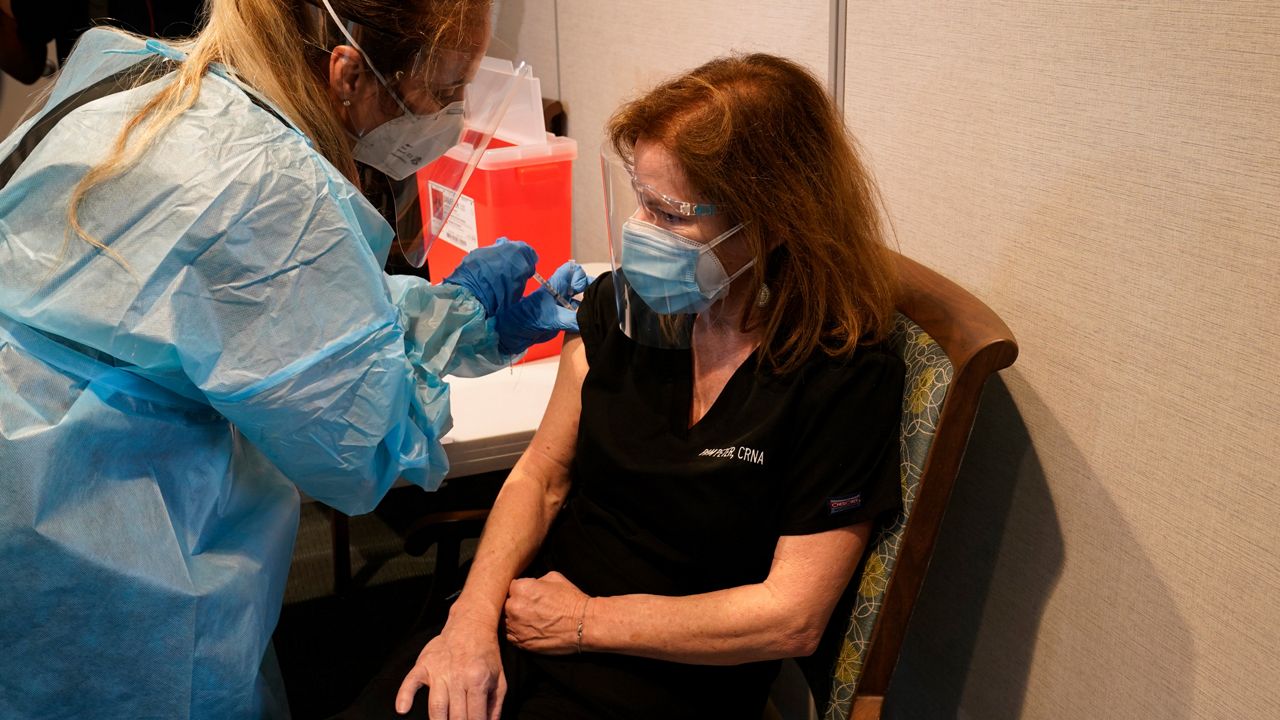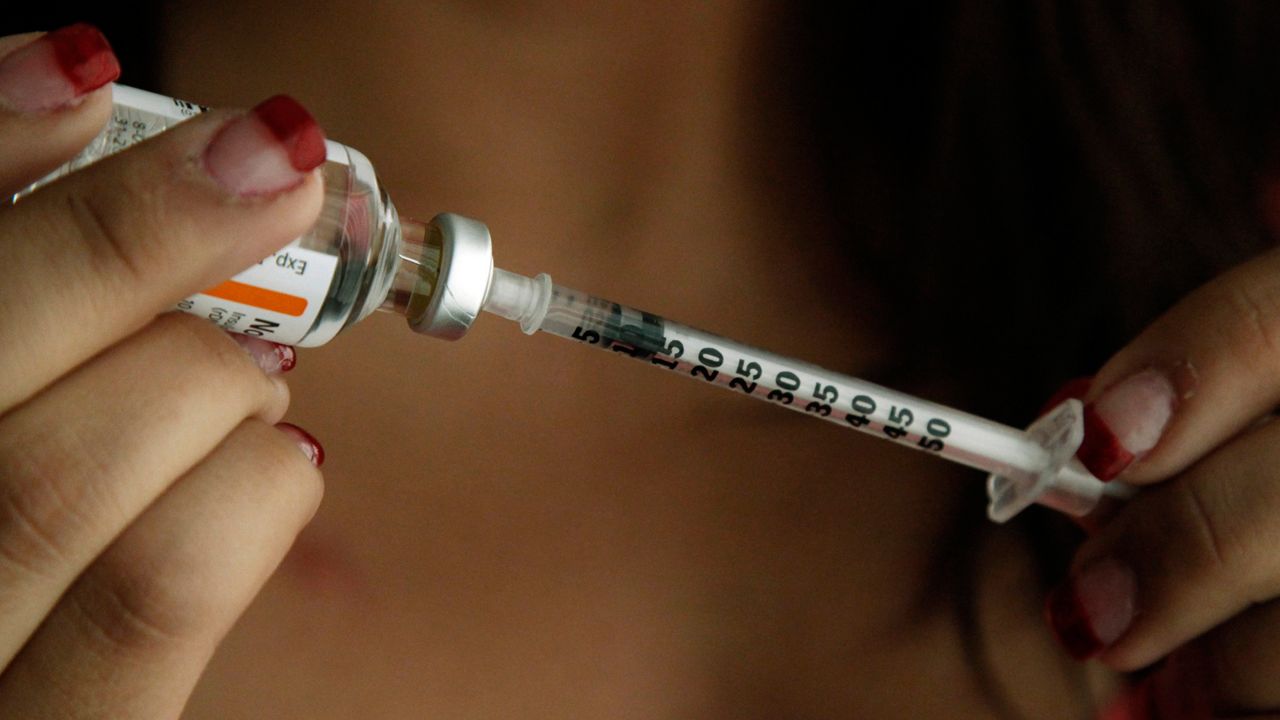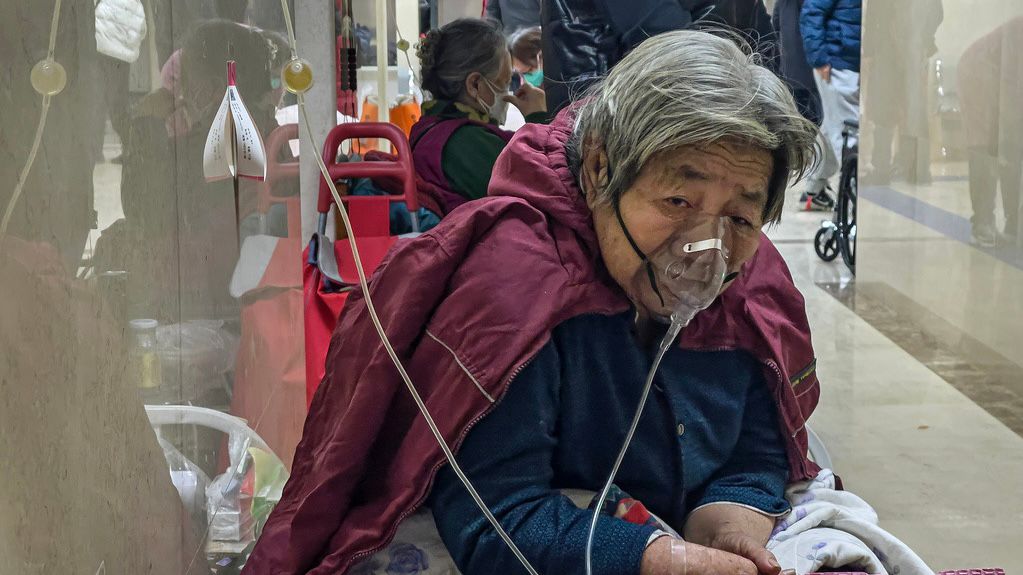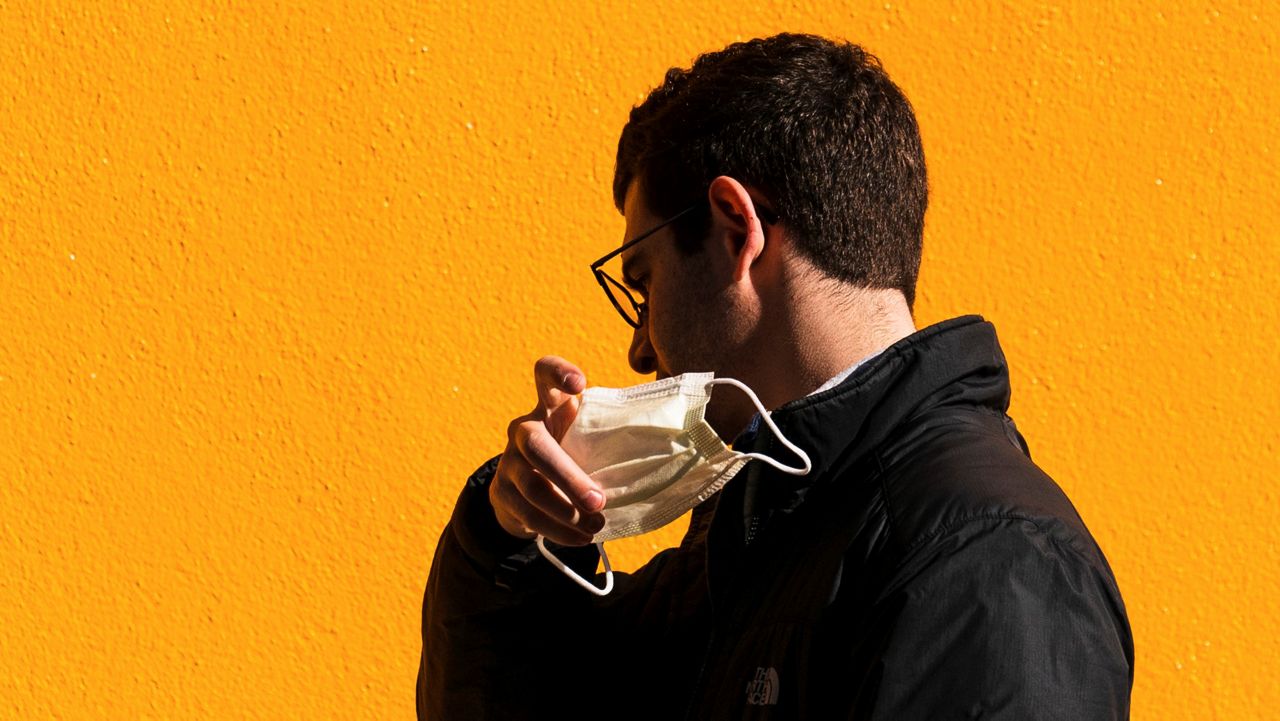The United States has hit another key milestone in its fight against the COVID-19 pandemic as the coronavirus continues to rage nationwide, driven by the highly contagious delta variant.
Two hundred million Americans have received at least one dose of a COVID-19 vaccine, White House COVID-19 data director Cyrus Shahpar wrote on Twitter Friday.
That figure is inclusive of the more than 1 million doses administered over Thursday's total, including 534,000 newly vaccinated.
"On avg., over 33,000 people have gotten their first dose, every hour of every day since mid-Dec 2020," Shahpar wrote on Twitter. "Keep it up!"
Vaccination rates have been on the rise nationwide in recent weeks amid a rise in COVID-19 cases and hospitalizations.
On Thursday, the U.S. saw its first day of one million doses administered in nearly 7 weeks, Shahpar reported, adding that it represents a " 31% week-over week increase in the daily average" of people completing their vaccination series.
Two states that lagged behind the rest of the nation – Louisiana and Oklahoma – are outpacing the national average, White House Covid-19 Response Team Chief of Staff Asma Mirza said Thursday.
'We're seeing a new willingness, a new openness to getting vaccinated," Mirza added.
The news comes the same week that the Biden administration announced a plan to administer booster shots beginning in early September, and a mandate for all nursing home staff to be vaccinated in order for those facilities to receive federal Medicare and Medicaid funding.
“If you work in a nursing home and serve those on Medicare and Medicaid, you will be required to get vaccinated,” Biden said in a speech from the White House, later adding: “With this announcement, I am using the power of the federal government as a payer of healthcare costs to reduce those risks to our most vulnerable seniors. These steps are all about keeping people safe and out of harm's way.”
The new mandate, in the form of a forthcoming regulation to be issued by the Centers for Medicare & Medicaid Services, could take effect as soon as next month.
Hundreds of thousands of nursing home workers are not vaccinated, according to federal data, despite those facilities bearing the brunt of the early COVID-19 outbreak and their workers being among the first in the country to be eligible for shots.
Over 130,000 COVID-19 deaths can be tied to nursing homes, even though around 82% of residents per facility have been vaccinated nationwide. The rate of vaccinations among nursing home workers is dramatically lower, with around 60% of workers on average having completed a vaccine regimen.
The nursing home mandate comes as the Biden administration seeks to raise the costs for those who have yet to get vaccinated, after months of incentives and giveaways proved to be insufficient to drive tens of millions of Americans to roll up their sleeves.
In just the past three weeks, Biden has forced millions of federal workers to attest to their vaccination status or face onerous new requirements, with even stricter requirements for federal workers in frontline health roles, and his administration has moved toward mandating vaccines for the military as soon as next month.
"If you walk into a government office building, you should know federal workers are doing everything possible to keep you safe. If you are a veteran seeking care at a VA hospital, you should not be a greater risk than you were outside the hospital," the president said Wednesday. "Now, if you visit, live, or work in a nursing home, you should not be at a high risk for contracting COVID from unvaccinated employees."
Biden also celebrated businesses that have mandated vaccines for their own workforces and encouraged others to follow, and highlighted local vaccine mandates as a condition for daily activities, like indoor dining.
"I am proud to see the private sector stepping up," Biden said of the mandates, naming AT&T, Amtrak and McDonald's as leaders in the push.
The Biden administration's effort seems to be paying off, as the nation’s rate of new vaccinations has nearly doubled over the past month, but about 80 million Americans are eligible but haven’t yet been vaccinated.
The boosters, on the other hand, will be a third dose of the Pfizer-BioNTech or Moderna mRNA vaccines, with more information for those who have received the single-shot Johnson & Johnson vaccine coming soon.
“Having reviewed the most current data, it is now our clinical judgment that the time to lay out a plan for COVID-19 boosters is now,” said Surgeon General Vivek Murthy in a briefing Wednesday.
“Recent data makes it clear that protection against mild and moderate disease has decreased over time. This is likely due to both the waning immunity and the strength of the widespread delta variant,” Dr. Murthy added.
The boosters are expected for Americans 18 and older, officials said, and they will first go to people vaccinated earliest in the process, such as in December or January.
“This will boost your immune response, increase your protection from COVID-19, and is the best way to protect ourselves from new variants that could arise,” President Joe Biden said of the booster shots in a speech from the White House on Wednesday evening.
Hours after the announcement, President Biden told ABC News in an exclusive interview that he and First Lady Dr. Jill Biden will get a booster shot, noting that they were some of the earliest people to get vaccinated.
"We're gonna get the booster shots," Biden said, adding: "We got our shots all the way back in, I think, December, so it's past time."
Biden went on to say that the administration has been preparing for the possibility of booster shots for several months, assuring Americans there is enough stockpile of both the Moderna and Pfizer vaccines in order for every eligible adult in the U.S. to get their third dose.
The president also pushed back at criticism that the United States should not be giving out booster shots until other countries have received their first dose, saying he thinks it is possible to “take care of America and help the world at the same time.”
Top scientists at the World Health Organization bitterly objected to the U.S. plan, noting that poor countries are not getting enough vaccines for their initial rounds of shots.
"We're planning to hand out extra life jackets to people who already have life jackets, while we're leaving other people to drown without a single life jacket," said Dr. Mike Ryan, who oversees health emergencies for the WHO. "That's the reality. Science is not certain on this. There are clearly more data to collect."
President Biden pushed back on that assertion.
“Are you comfortable with Americans getting a third shot when so many millions around the world haven't had their first?” ABC's Stephanopoulos asked Biden.
“Absolutely, because we’re provided more to the rest of the world than all the rest of the world combined,” Biden said. “Before we get to the middle of next year, we're gonna provide a half a billion shots to the rest of the world. We're keeping our part of the bargain. We’re doing more than anybody.”
The Associated Press contributed to this report.








